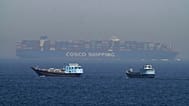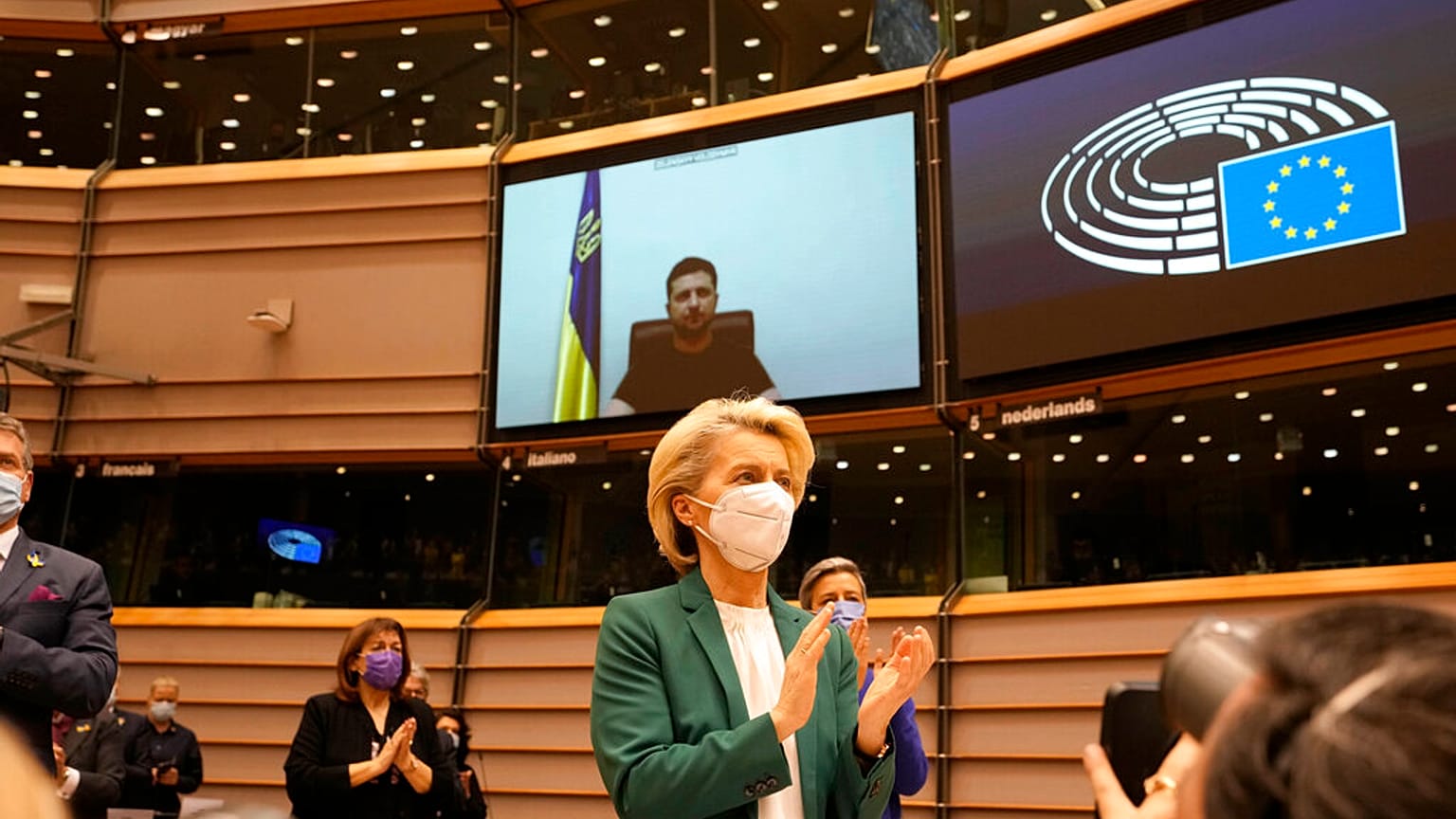The Ukrainian president addressed MEPs in Brussels on Tuesday via videolink.
For many years now, Russia has done everything to sow division in the West, actively supporting populist forces of disruption and disunity.
But now, the Russian invasion of Ukraine has sent long-cherished taboos tumbling.
Sweden and Finland are now thinking of joining NATO.
In a highly unusual move, Switzerland joined the European Union in sanctioning Russia.
And in perhaps the most stunning reversal, Germany abandoned its decades-long refusal to prioritise military spending and sending arms to war zones.
The elephant in the room now, though, is Ukrainian membership of the EU, which Ursula von der Leyen, European Commission president, told Euronews is a realistic prospect.
"And indeed, over time, they belong to us. They are one of us. And we want them in," von der Leyen said.
Following these words from the EU Commission president on Sunday, Ukrainian president Volodymyr Zelenskyy wasted no time to call for his country's EU membership.
During an emotional special session of the European Parliament, Zelenskyy made his case to MEPs via video link.
"We have proven our strength...prove that you are together with us...then life will win over death and light over darkness," the Ukrainian president said on Tuesday.
The Ukrainian ambassador to the United Nations also said this week: "If Ukraine does not survive, we cannot be surprised if democracy fails next."
The anti-Russian sanctions following the attack on Ukraine were numerous this week too.
Even in the worlds of sports and culture, Russia was ostracised, with FIFA and UEFA kicking out the national team and clubs from their competitions.
And faced with one of the largest influx of refugees in years, the EU agreed to trigger a never-before-used directive to grant temporary protection for Ukrainians fleeing the war.
More than one million Ukrainians have fled the country since Russia's invasion began one week ago, according to the UN refugee agency.
The vast majority of these exiled people have arrived in EU countries, with Poland registering over half a million Ukrainian refugees and Hungary seeing more than 130,000 arrivals.
To cope with the large and abrupt number of migrants, the 27 member states have dusted off a 2001 EU directive that had never been used before and is designed to provide immediate assistance and protection to war refugees.
The Temporary Protection Directive circumvents the traditionally overburdened asylum procedure and offers a quick and simplified path to access protection across the EU.
Ukrainian refugees will be given residence permits to stay inside the bloc for at least one year, a period that will be automatically extended for a further year. Member states can then decide to prolong the exceptional measure by one more year if the war continues to ravage the country.














